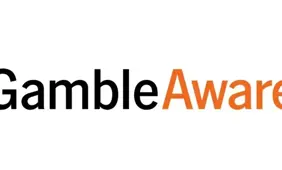Gambling Crisis in Estonia Sees One in Ten at Risk of Addiction
A recent study reveals that every tenth Estonian is suffering from gambling addiction.

Gambling addiction in Estonia becomes a growing concern.
According to data from last year, 112,000 people in Estonia, or 11 percent of the population, are at risk of gambling addiction, with an increasing proportion of young people facing problems. A new advertising law is expected to be completed by the end of the year, but it does not include a ban on gambling advertisements.
Rising Addiction among Young People
In Estonia, purchasing lottery tickets, placing sports bets, or playing casino games is permitted from the age of 21. Nevertheless, according to a study commissioned by the Gambling Addiction Counseling Center and conducted by Kantar Emor, 59 percent of respondents aged 15-20 have had contact with gambling. Furthermore, 47 percent of 15-19-year-olds who had gambled in the past two years were also in the at-risk group, indicating that gambling had caused them some problems or that they were pathological gamblers.
According to Silver Sternfeldt, the CEO of the Gambling Addiction Counseling Center (HNK), over one hundred thousand people are in the “at-risk” group, Estonia ranks first among European countries with gambling problems. Sternfeldt attributes this to societal attitudes toward gambling.
As a society, we have not yet reached a point where we know how to gamble responsibly or demand responsible gambling operations.
The Ineffectiveness of Bans
Gambling providers are thriving, interest in gambling is high, and new online casinos are constantly entering the market. For example, last year, the difference between the stakes-placed and the winnings paid out in online gambling alone was €350 million. The state collected €48 million in gambling taxes over the year.
According to Tõnis Rüütel, director of the Estonian Association of Gambling Operators (EHKL), gambling addiction is undoubtedly a problem. However, he noted that there is increasing focus on promoting responsible gambling. For instance, gambling providers have the option to set limits for players.
No operator is interested in having a gambling addict. This option exists and is used very actively; all operators impose internal restrictions within their organizations to prevent compulsive gamblers from playing.
Additionally, he highlighted the gambling restriction offered by the Tax and Customs Board, which players struggling with addiction can impose on themselves. According to the latest data, just over 6,300 citizens have set gambling restrictions for themselves, and nearly 3,500 have banned themselves from sports betting. However, 47 percent of respondents in the Kantar Emor study indicated that self-restriction was not helpful, as they simply found other ways to gamble.
More Responsible Gambling News
Aggressive Advertising and Vulnerable Youth
Silver Sternfeldt from the Gambling Addiction Counseling Center (HNK) attributes the spread of addiction to aggressive advertising by gambling providers. The study revealed that 76 percent of the population had noticed gambling ads in at least one advertising channel, most frequently online and on social media. This is a 7 percent increase compared to two years ago. Younger individuals are particularly susceptible to these advertisements due to their high presence on various online platforms.
Estonia has imposed restrictions on gambling advertising as outlined in the advertising law. However, the current law is vague, making it difficult for the Consumer Protection and Technical Regulatory Authority (TTJA) to maintain control over the situation. For instance, the law states that gambling advertisements must not include calls to participate in gambling or suggest that gambling increases social success, but the term "social success" is not clearly defined.
The Need for Stricter Advertising Laws and Education
A new advertising law that regulates the unacceptable practices more precisely could be of much help to the problem. The coalition agreement of the governing parties included an intention to ban all gambling advertisements, but this provision did not make it into the draft legislation prepared by the Ministry of Economic Affairs and Communications. The ministry believes that it is first necessary to investigate whether banning advertisements would indeed help reduce problematic behavior.
RELATED TOPICS: Responsible Gambling
Most Read
Must Read
 Interviews
Interviews
Sweepstakes Casinos: Thriving in an Ever-Changing Industry – Interview with Attorney Stephen C. Piepgrass
Feb 17, 2025 Interviews
Interviews








Review this New Post
Leave a Comment
User Comments
Comments for Gambling Crisis in Estonia Sees One in Ten at Risk of Addiction